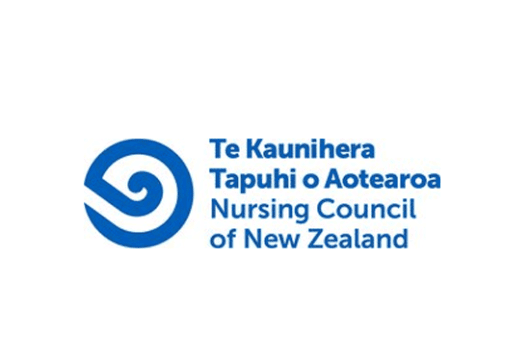
1. Introduction to Nursing Opportunities in New Zealand
New Zealand, known for its stunning landscapes and high quality of life, also offers significant opportunities for European registered nurses. With a healthcare system that is consistently ranked among the best globally, New Zealand is an attractive destination for nurses seeking to advance their careers while enjoying a balanced lifestyle. This section provides an overview of the healthcare system, the demand for registered nurses, and the pathways available for European nurses to work in New Zealand.
1.1 Overview of New Zealand's Healthcare System
New Zealand's healthcare system is publicly funded through general taxation and provides universal healthcare to all residents. The system is characterized by a mix of public hospitals and private healthcare providers, with the public sector playing a dominant role in providing comprehensive healthcare services. The government emphasizes preventive care, community health, and equitable access to healthcare, making it an ideal environment for nurses committed to patient-centered care.
1.2 Demand for Registered Nurses in New Zealand
New Zealand faces a growing demand for registered nurses due to an aging population, increasing rates of chronic illnesses, and ongoing healthcare reforms aimed at improving service delivery. This demand is particularly high in rural and underserved areas where healthcare resources are limited. European nurses, who bring diverse skills and experience, are highly valued and often fill critical roles in both urban and regional healthcare settings.
1.3 Pathways for European Nurses to Work in New Zealand
European nurses can enter the New Zealand healthcare workforce through several pathways, depending on their qualifications and professional experience. These pathways include registering with the Nursing Council of New Zealand (NCNZ), obtaining the appropriate visa, and securing employment within the healthcare sector. Some nurses may also choose to further their education in New Zealand to enhance their qualifications and career prospects.
2. Benefits of Working as a Nurse in New Zealand
New Zealand offers numerous benefits for nurses, from competitive salaries and excellent work-life balance to opportunities for professional growth and personal development.
2.1 Competitive Salaries and Benefits
Nurses in New Zealand are well-compensated, with salaries reflecting their level of experience, qualifications, and specialization. The average salary for registered nurses ranges from NZD 54,000 to NZD 77,000 per year, with additional benefits such as paid leave, overtime pay, and contributions to retirement savings plans. New Zealand also offers generous provisions for work-life balance, including flexible working hours and comprehensive healthcare benefits.
2.2 Professional Development Opportunities
New Zealand places a strong emphasis on the professional development of its healthcare workforce. Nurses have access to a variety of educational programs, workshops, and seminars aimed at enhancing their skills and knowledge. Whether it’s pursuing a postgraduate degree, attending professional workshops, or engaging in specialized training, New Zealand provides ample opportunities for career advancement. Healthcare employers often support these endeavors by providing time off for study and financial assistance.
2.3 Work-Life Balance and Quality of Life
New Zealand is known for its excellent work-life balance, which is a significant draw for European nurses. The standard workweek for nurses is typically 40 hours, with options for part-time and flexible schedules. The country’s natural beauty, outdoor lifestyle, and family-friendly environment offer a high quality of life. Whether you prefer the vibrant cities of Auckland and Wellington or the serene settings of rural towns, New Zealand provides a balanced lifestyle with a strong focus on well-being.
3. Qualifications Required for European Nurses
European nurses must meet specific qualifications to work in New Zealand. These requirements ensure that all nurses provide high-quality care in line with New Zealand’s healthcare standards.
3.1 Nursing Qualifications Recognized in New Zealand
The Nursing Council of New Zealand (NCNZ) is responsible for recognizing international nursing qualifications. Most European nursing qualifications are accepted, provided they are equivalent to New Zealand’s standards. Nurses may need to provide detailed documentation of their education, clinical experience, and professional registration in their home country to verify their eligibility.
3.2 English Language Proficiency Requirements
Proficiency in English is essential for nurses working in New Zealand. European nurses whose first language is not English must demonstrate their language skills through standardized tests such as the International English Language Testing System (IELTS) or the Occupational English Test (OET). Typically, a minimum score of 7.0 in each band of the IELTS or a B grade in each section of the OET is required. This ensures effective communication with patients and colleagues in a predominantly English-speaking environment.
3.3 Additional Certifications and Training
In some cases, European nurses may be required to complete additional certifications or training to meet New Zealand’s standards. This might include courses on New Zealand nursing practices, healthcare ethics, or advanced clinical skills. These certifications can often be completed online or through short-term courses in New Zealand, providing an accessible pathway for nurses to align their qualifications with local requirements.
4. Registration Process for European Nurses in New Zealand
The registration process with the Nursing Council of New Zealand (NCNZ) is a key step for European nurses who wish to practice in the country.
4.1 Overview of the Nursing Council of New Zealand (NCNZ) Registration
The NCNZ is the regulatory body responsible for registering nurses in New Zealand. To practice as a registered nurse, European nurses must complete the NCNZ registration process, which includes meeting specific criteria related to qualifications, English language proficiency, and work experience.
4.2 Steps to Register as a Nurse in New Zealand
The registration process generally involves the following steps:
1. Qualification Assessment: Nurses must submit their qualifications and professional history to the NCNZ for assessment. This includes providing evidence of education, training, and registration in their home country.
2. English Language Proficiency: Nurses must demonstrate their English language skills through approved tests such as IELTS or OET.
3. Health and Character Check: A health and character check is required as part of the registration process to ensure that all nurses meet the high standards of professional conduct expected in New Zealand.
4. Registration Application: Once all documents and assessments are complete, nurses can submit their application for registration. The process may take several months, so it’s advisable to start early.
4.3 Common Challenges and Solutions
The registration process can present challenges, including delays in document verification, difficulties in meeting English language requirements, and navigating the NCNZ’s procedures. Nurses can overcome these challenges by starting the process early, seeking guidance from recruitment agencies or professional associations, and ensuring all documentation is thorough and accurate.
5. Visa Options for European Nurses
Obtaining the correct visa is a crucial step for European nurses wishing to work in New Zealand. Several visa options are available, depending on the nurse’s qualifications, experience, and employment situation.
5.1 Skilled Migrant Category Visa
The Skilled Migrant Category (SMC) visa is a popular pathway for European nurses. This visa allows nurses to live and work in New Zealand on a permanent basis. To qualify, nurses must meet specific points-based criteria, including age, qualifications, work experience, and English language proficiency. The SMC visa is ideal for those looking to establish a long-term career in New Zealand.
5.2 Work to Residence Visas
The Work to Residence visa is another viable option, allowing nurses to work in New Zealand temporarily with the possibility of transitioning to permanent residency. This visa typically requires a job offer from a New Zealand employer. After working in New Zealand for a set period, nurses may be eligible to apply for residence.
5.3 Temporary vs. Permanent Visa Options
European nurses can choose between temporary and permanent visa options depending on their career goals and life plans. Temporary visas allow nurses to work in New Zealand for a specified period, with the potential to apply for permanent residency later. Permanent visas, such as the SMC visa, grant immediate permanent residency, allowing nurses to live and work in New Zealand indefinitely.
6. Job Market and Employment Opportunities
New Zealand’s job market for nurses is robust, with opportunities available across various regions and healthcare settings. Understanding this landscape can help European nurses make informed decisions about where to work and what roles to pursue.
6.1 Demand Across Different Regions in New Zealand
While nursing opportunities exist nationwide, certain regions in New Zealand have a higher demand for healthcare professionals. Rural and underserved areas, in particular, often face staffing shortages and offer incentives to attract nurses. Urban centers such as Auckland, Wellington, and Christchurch have a high concentration of healthcare facilities but may have more competitive job markets.
6.2 Public vs. Private Sector Employment
Nurses in New Zealand can work in either the public or private sector. The public sector, funded by the government, provides stable employment with structured pay scales and comprehensive benefits. The private sector may offer higher salaries and more opportunities for specialization but may also come with less job security.
6.3 Specializations in Demand
Certain nursing specializations are particularly in demand in New Zealand, including aged care, mental health, intensive care, and emergency nursing. Nurses with experience in these areas may find more job opportunities and higher salaries. Additionally, the ongoing development of healthcare services in rural areas has created a demand for nurses willing to work in these regions.
7. Recruitment Agencies and Job Portals
Recruitment agencies and job portals play a crucial role in helping European nurses find employment in New Zealand.
7.1 Leading Recruitment Agencies for Nurses
Several recruitment agencies specialize in placing international nurses in New Zealand healthcare positions. These agencies assist with everything from job placement to visa applications, easing the transition for European nurses. Notable agencies include Accent Health Recruitment, Geneva Healthcare, and Medacs Healthcare, which have extensive networks and experience in the New Zealand healthcare market.
7.2 Navigating New Zealand Job Portals
New Zealand job portals such as Seek, Indeed, and Kiwi Health Jobs are valuable resources for nurses seeking employment. These platforms allow nurses to search for jobs by location, specialization, and employer, providing a comprehensive overview of available opportunities. Many healthcare facilities also post job openings directly on their websites.
7.3 Tips for Applying Through Agencies
When applying through recruitment agencies, nurses should prepare a well-drafted resume and be clear about their employment preferences, such as location and work environment. Agencies often provide additional services, including interview preparation and relocation advice, which can be invaluable for nurses moving to New Zealand for the first time.
8. Relocation and Settlement Support
Moving to New Zealand involves more than just finding a job; it requires careful planning for relocation and settlement. European nurses can access various support services to ease their transition to life in New Zealand.
8.1 Housing Options and Costs
Housing is a major consideration for nurses relocating to New Zealand. The cost and availability of housing vary by location, with higher costs in urban areas such as Auckland and Wellington. Many healthcare facilities offer assistance with finding accommodation, and some provide temporary housing for newly arrived staff. Understanding the local real estate market and budgeting for housing costs is essential for a smooth transition.
8.2 Financial Considerations and Cost of Living
New Zealand has a relatively high cost of living, particularly in major cities, so it’s important for nurses to plan their finances carefully. Budgeting for expenses such as rent, utilities, transportation, and groceries is crucial. European nurses should also familiarize themselves with New Zealand’s tax system and retirement savings scheme (KiwiSaver), which is an integral part of financial planning in New Zealand.
8.3 Cultural Adjustment and Social Integration
Adjusting to New Zealand’s culture is an important aspect of relocation. While New Zealand is known for its friendly and welcoming nature, European nurses may experience differences in workplace culture, social norms, and daily life. Support networks, including professional associations, community groups, and online forums, can help nurses integrate into New Zealand society. Many employers also offer orientation programs that cover cultural awareness and workplace practices, helping international staff adapt to their new environment.
9. Continuing Professional Development (CPD) in New Zealand
Continuing professional development (CPD) is mandatory for registered nurses in New Zealand, ensuring they stay updated with the latest practices and standards in healthcare.
9.1 CPD Requirements for Registered Nurses
The Nursing Council of New Zealand requires all registered nurses to complete a minimum number of CPD hours annually to maintain their registration. These CPD activities must be relevant to the nurse’s area of practice and can include formal education programs, workshops, online courses, and professional reading.
9.2 Opportunities for Further Education and Specialization
New Zealand offers numerous opportunities for nurses to further their education and specialize in specific areas of practice. Universities and professional institutions provide postgraduate courses in nursing specializations such as critical care, mental health, and leadership. Additionally, many healthcare employers offer support for nurses pursuing further studies, recognizing the importance of advanced skills in enhancing patient care.
9.3 CPD Resources and Support
A wide range of resources is available to help nurses meet their CPD requirements, including online learning platforms, professional journals, and training workshops. Professional associations such as the New Zealand Nurses Organisation (NZNO) provide CPD programs and resources tailored to the needs of their members.
10. Understanding New Zealand Nursing Practices
Adapting to New Zealand’s nursing practices is essential for European nurses. While they bring valuable skills, they may encounter differences in healthcare protocols, patient care practices, and workplace dynamics.
10.1 Differences Between European and New Zealand Nursing Practices
While the fundamentals of nursing are universal, there are differences in how nursing is practiced in New Zealand compared to Europe. For example, New Zealand nurses often have greater autonomy in clinical decision-making, especially in rural settings where they may perform tasks typically reserved for doctors in other countries. Additionally, the emphasis on holistic care and family involvement in patient care is a distinctive aspect of New Zealand’s healthcare approach.
10.2 Ethical and Legal Standards
New Zealand nurses must adhere to strict ethical and legal standards, enforced by the Nursing Council of New Zealand. This includes maintaining patient confidentiality, obtaining informed consent, and practicing within their scope of competence. Nurses must also be aware of their legal responsibilities, such as mandatory reporting of certain conditions and adhering to the Code of Conduct.
10.3 Patient Care and Safety Protocols
Patient care and safety are paramount in New Zealand’s healthcare system. European nurses must familiarize themselves with local protocols, including guidelines for infection control, medication administration, and emergency procedures. Ongoing education and training in these areas are typically provided by employers to ensure that all staff are competent in maintaining the highest standards of patient care.
11. Challenges for European Nurses in New Zealand
While New Zealand offers many opportunities for European nurses, there are challenges that they may face in both their professional and personal lives.
11.1 Adapting to the New Zealand Healthcare System
The New Zealand healthcare system, while similar to European systems in many respects, has unique features and regulations. Adapting to this system can be challenging, especially for nurses accustomed to different clinical protocols or administrative processes. Support from colleagues, mentors, and professional development programs can help ease this transition.
11.2 Navigating the NCNZ Process
The Nursing Council of New Zealand registration process can be complex and time-consuming, particularly for those unfamiliar with the regulatory environment. Delays in document processing or challenges in meeting English language requirements can be frustrating. Nurses are advised to seek support from professional associations or recruitment agencies to navigate this process more effectively.
11.3 Managing Work-Life Balance
Balancing work and personal life can be challenging for nurses, especially those who are new to New Zealand and adjusting to a different culture and work environment. Long shifts, the demands of the job, and the need to establish a new social network can all contribute to stress. Employers in New Zealand often provide resources and programs to support staff well-being, including flexible working arrangements and employee assistance programs.
12. Success Stories and Testimonials
Hearing from nurses who have successfully transitioned to working in New Zealand can provide valuable insights and encouragement for European nurses considering this move.
12.1 Experiences of European Nurses in New Zealand
Many European nurses have successfully transitioned to working in New Zealand, bringing their skills and experience to a healthcare system that values their contributions. These nurses often highlight the supportive work environment, opportunities for professional development, and the overall quality of life as key factors in their decision to move.
12.2 Case Studies of Successful Transitions
Case studies of European nurses who have navigated the registration and employment process in New Zealand can offer practical advice and inspiration. These stories typically emphasize the importance of preparation, perseverance, and utilizing available resources to achieve a smooth transition.
12.3 Lessons Learned and Advice for Newcomers
The experiences of other nurses provide important lessons for newcomers. Common advice includes starting the registration process early, engaging with professional networks, and being open to learning and adapting to new practices. Many also emphasize the importance of embracing New Zealand’s culture and making the most of the opportunities that come with living and working in the country.
13. Future Prospects for European Nurses in New Zealand
The future looks promising for European nurses in New Zealand, with ongoing demand for healthcare professionals and emerging opportunities in the field.
13.1 Emerging Trends in New Zealand Healthcare
Several trends are shaping the future of healthcare in New Zealand, including the increasing use of technology in patient care, a growing emphasis on community-based healthcare, and the need for specialized nursing skills in areas such as aged care and mental health. European nurses with expertise in these areas will find themselves in high demand.
13.2 Long-Term Career Opportunities
New Zealand offers long-term career opportunities for nurses, including pathways to advanced practice roles, leadership positions, and opportunities in healthcare education and research. The demand for skilled nurses is expected to remain strong, particularly in areas experiencing population growth and healthcare expansion.
13.3 The Role of Technology in Nursing
Technology is playing an increasingly important role in nursing, from electronic health records to telemedicine and advanced diagnostic tools. European nurses who are comfortable with technology and eager to embrace new innovations will find themselves well-positioned to take advantage of these developments.
14. Frequently Asked Questions (FAQs)
14.1 How do I get my nursing qualifications recognized in New Zealand?
You must submit your qualifications to the Nursing Council of New Zealand (NCNZ) for assessment as part of the registration process.
14.2 How long does the registration process take?
The registration process can take several months, depending on the completeness of your documentation and the time taken for verification.
14.3 What are the language requirements?
Nurses must demonstrate English language proficiency, usually by scoring at least 7.0 in each band of the IELTS or a B in each section of the OET.
14.4 Can I apply for permanent residency as a nurse?
Yes, many nursing roles are eligible for permanent residency under New Zealand’s skilled migration program.
14.5 How do I find a nursing job in New Zealand?
Nurses can find jobs through recruitment agencies, job portals, and direct applications to healthcare facilities.
14.6 What are the benefits of working as a nurse in New Zealand?
Benefits include competitive salaries, professional development opportunities, and a good work-life balance.
15. Conclusion
New Zealand offers a wealth of opportunities for European registered nurses, combining a strong demand for skilled professionals with the chance to experience a high quality of life. Although the process of relocating and registering can be challenging, the rewards are significant, including professional growth and personal fulfillment. For European nurses looking to make a move, New Zealand represents a land of opportunity with a welcoming healthcare system and a bright future.

Visa Options for European Nurses to Work in New Zealand
Visa Options for European Nurses to Work in New Zealand
European nurses can work in New Zealand with these visas: Essential Skills (temporary, employer-sponsored), Skilled Migrant (permanent, points-based with job offer), Work to Residence (temporary, leading to residency), and Long Term Skill Shortage (temporary, can lead to residency).

Steps to work as a Registered Nurse in New Zealand for European Nurses
Steps to work as a Registered Nurse in New Zealand for European Nurses
To register as a European nurse with the Australian Health Practitioner Regulation Agency (AHPRA), follow these detailed steps.

How European Nurses can register with the Nursing Council of New Zealand (NCNZ)
How European Nurses can register with the Nursing Council of New Zealand (NCNZ)
In order to work as a Registered Nurse in New Zealand, you must Register with the Nursing Council of New Zealand (NCNZ).
Do you still have any questions? Join our Linkedin Group "European Nurse Recruitment ".